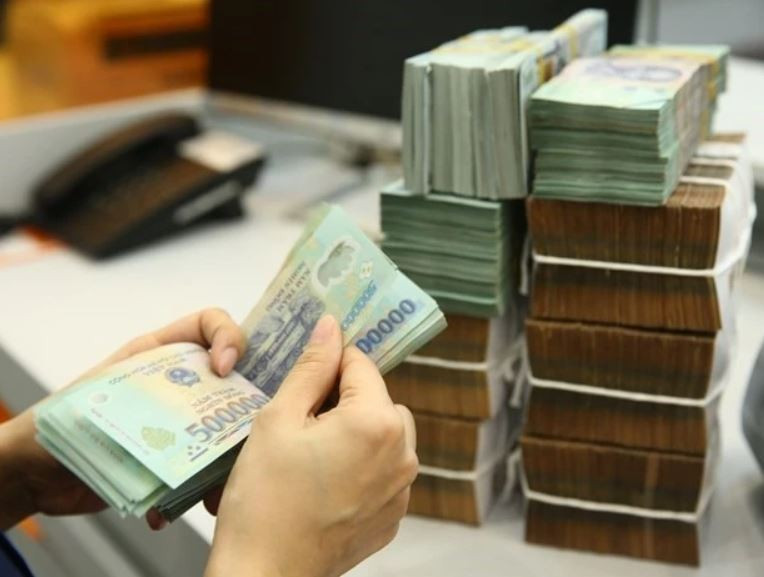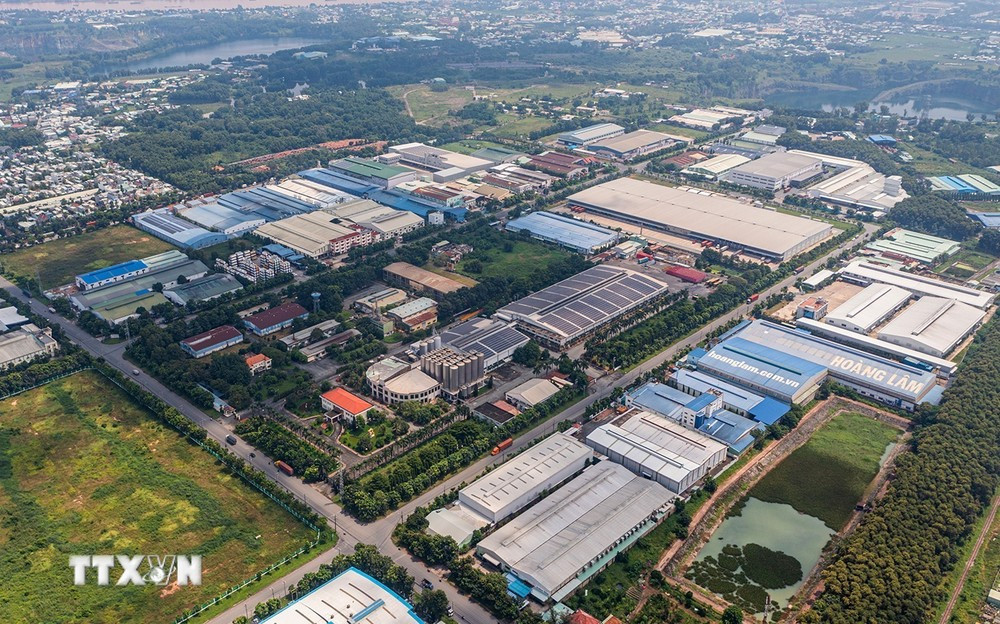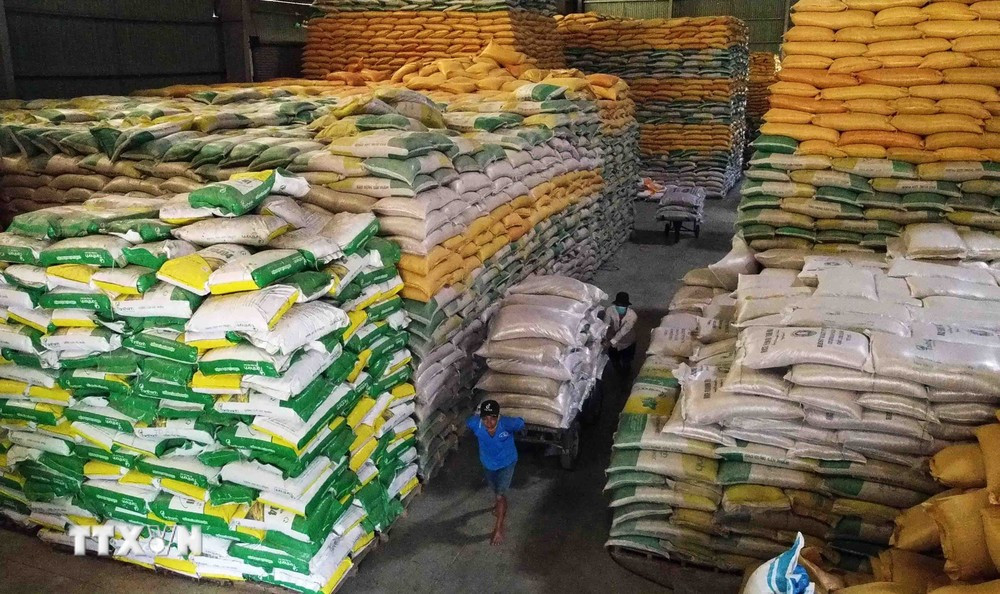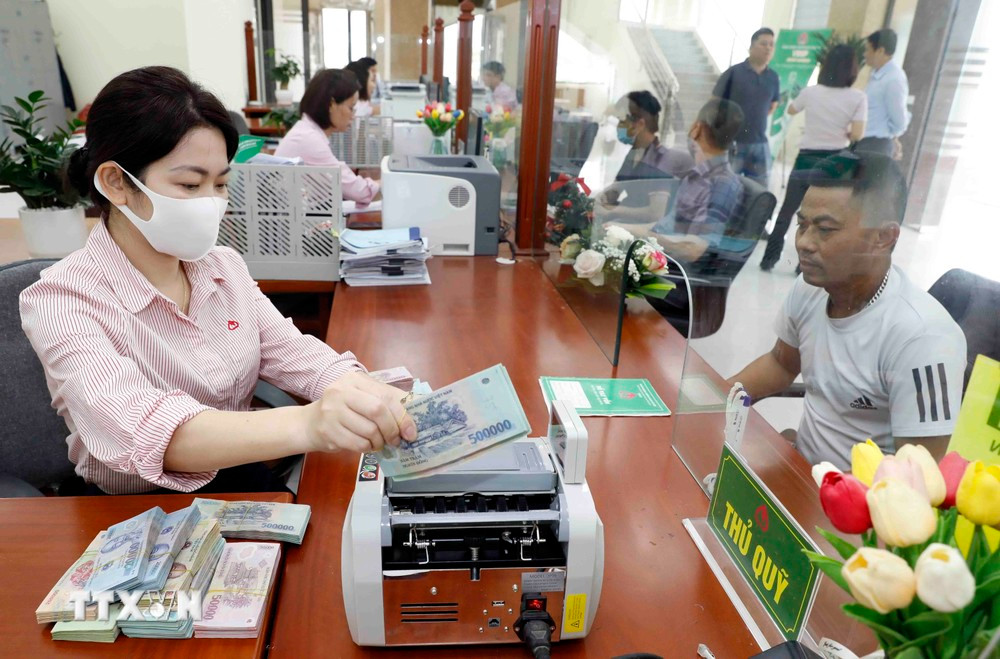Preferential policies to support the development of industrial clusters; New regulations on the management of newly printed money series are two of the new economic-related policies that will take effect from May 2024.

A series of economic-related policies such as Incentive policies, support for industrial cluster development; New regulations on management of newly printed money series; Regulations on the loss level of national reserve rice; Import costs, export costs of national reserve goods... will officially take effect from May 2024.
Many preferential policies and support for industrial cluster development are stipulated in Decree No. 32/2024/ND-CP issued on March 15, 2024 by the Government.
The Decree stipulates investment incentives for: Industrial clusters are areas with difficult socio-economic conditions; investment in building technical infrastructure for industrial clusters is a sector or profession with special investment incentives.
The application of incentives to investment projects in the construction of technical infrastructure of industrial clusters and investment projects in production and business in industrial clusters shall be implemented in accordance with the provisions of the law on land, the law on tax, the law on credit and other relevant provisions of law. In cases where the law stipulates different levels of incentives, the highest level of incentives shall apply.
The Decree stipulates that the local budget (including targeted additional revenue from the central budget to the local budget) balances investment support and development of technical infrastructure systems inside and outside industrial clusters in the area (priority support for investment in environmental protection infrastructure works of industrial clusters that have come into operation; support investment in essential common technical infrastructure works of industrial clusters in areas with difficult or especially difficult socio-economic conditions, industrial clusters developing in the direction of industry linkage, specialization, support, ecology, and preservation of traditional crafts) according to the provisions of the Law on Public Investment and the Law on State Budget.

The State supports no more than 30% of the total investment capital of the project to invest in the construction of technical infrastructure of industrial clusters. The support fund is not included in the total investment of the project to calculate the land lease price and infrastructure usage price for investment projects in industrial clusters. The investor in the construction of technical infrastructure of industrial clusters is responsible for managing, repairing, and regularly operating the supported technical infrastructure works to serve the general activities of the industrial cluster.
The People's Committee at the provincial level reports to the People's Council at the same level for decision or decides according to its authority and legal provisions on supporting investment in building technical infrastructure for industrial clusters in the area.
The Decree will officially take effect from May 1, 2024.
The Ministry of Finance issued Circular No. 19/2024/TT-BTC dated March 22, 2024, stipulating economic and technical norms for preserving national reserve goods and loss norms for national reserve rice and paddy directly managed by the General Department of State Reserves.
According to the Circular, the loss rate for sealed rice storage is as follows: Storage time under 12 months is 0.050%; Storage time from 12 to 18 months is 0.058%; Storage time over 18 months is 0.066%.
Loss standards for loosely stored paddy and bagged paddy under low pressure conditions are as follows:
+ Rice storage time from 01 month to 03 months: 0.3%
+ Rice storage time from > 03 months to 06 months: 0.5%
+ Rice storage time from > 06 months to 09 months: 0.7%
+ Rice storage time from > 09 months to 12 months: 0.9%
+ Rice storage time from > 12 months to 18 months: 1.1%
+ Rice storage time from > 18 months to 24 months: 1.3%
+ Rice storage time from > 24 months to 30 months: 1.4%
+ Rice storage time over 30 months: additional/month: 0.015%

- Loss standards for loosely stored rice and tightly packed rice with nitrogen added to maintain a concentration of ≥ 98% are as follows:
+ Rice storage time from 01 month to 03 months: 0.3%
+ Rice storage time from > 03 months to 06 months: 0.5%
+ Rice storage time from > 06 months to 09 months: 0.6%
+ Rice storage time from > 09 months to 12 months: 0.7%
+ Rice storage time from > 12 months to 18 months: 0.8%
+ Rice storage time from > 18 months to 24 months: 0.9%
+ Rice storage time from > 24 months to 30 months: 1%
+ Rice storage time over 30 months: additional/month: 0.015%
This Circular takes effect from May 10, 2024.
The State Bank of Vietnam issued Circular 01/2024/TT-NHNN dated March 29, 2024 regulating the management of newly printed money series.
This Circular stipulates that the management of newly printed money series for State Bank banknotes is carried out from the time the series is issued, the use of the series in the money printing process until the newly printed money is released into circulation.
The Circular clearly states the principles of serial printing in the money printing process: For the types of money announced by the State Bank for issuance before 2003, the serial includes the serial number and a natural number sequence of 07 digits printed from 0000001 onwards; for the types of money announced by the State Bank for issuance from 2003 onwards, the serial includes the serial number and a natural number sequence of 08 digits, in which the two digits adjacent to the serial number are the last two digits of the year of production of the banknote, the next 06 digits are the natural number sequence printed from 000001 onwards; each banknote has its own serial number.
Principles of serial management in the printing process of money at printing and minting establishments:
Printing and minting establishments shall print banknote series according to the above principles. In case a damaged banknote is discovered after the serial printing stage, the printing and minting establishment shall use a banknote with a sub-rhyme to replace it.
The principle of using alternative sub-rhymes is implemented according to the regulations of the printing and minting establishments; the printing and minting establishments organize the storage and management of serial information of each type of money (including sub-rhymes) to ensure the accuracy and completeness of the elements recorded on the seals of newly printed envelopes, packages, bundles of money or other packaging specifications prescribed by the State Bank, including elements such as printing and minting establishments, types of money, serial rhymes, and year of production.
The Circular also regulates the management of newly printed money series during the process of money delivery and receipt as follows:
Printing and minting establishments deliver newly printed money to the State Bank (Department of Issuance and Treasury); deliver and receive newly printed money between Central Treasurys; deliver and receive newly printed money between the Central Treasury and the Transaction Office and State Bank branches; deliver and receive newly printed money between State Bank branches.
The party delivering newly printed money must make a list of the serial numbers of the money types according to regulations, attached with the money delivery and receipt minutes or delivery slip.

The recipient is responsible for checking and comparing the contents of the list with the actual delivery; in case of detecting any errors, the recipient must notify the delivery party to agree on adjustments, ensuring that they match the actual delivery.
When transferring newly printed money from the Issuance Reserve Fund to the Issuance Operation Fund at the State Bank branch and vice versa, the warehouse keeper on the delivering side shall make a list of the serial numbers of the money types according to regulations.
The receiving warehouse keeper is responsible for checking and comparing the contents of the list with the actual delivery; in case of detecting errors, the receiving party must notify the delivering party to agree on adjustments, ensuring that they match the actual delivery.
The serial list is signed by the delivering party's warehouse keeper and must accurately show the following elements: Delivering party, receiving party, currency type, quantity, serial number, year of manufacture, symbol of the package, bundle of money or other packaging specifications as prescribed by the State Bank. This list is made in 02 copies, each delivering and receiving party keeps 01 copy.
The Circular takes effect from May 14, 2024.
The Ministry of Finance issued Circular No. 20/2024/TT-BTC dated March 25, 2024 regulating the cost norms for importing and exporting national reserve goods at the door of national reserve warehouses directly managed by the General Department of State Reserves.
According to the Circular, the cost norms for importing and exporting national reserve goods at the national reserve warehouse gate directly managed by the General Department of State Reserves are specified in the appendix issued with Circular 20/2024/TT-BTC.
Typically, the cost standards for importing and exporting food and salt are regulated as follows:
+ Standard cost for importing rice into warehouse: 246,816 VND/ton/time;
+ Standard cost of rice warehouse: 234,400 VND/ton.time;
+ Standard cost for importing loose rice into warehouse: 261,271 VND/ton.time;
+ Standard cost for exporting loose rice from warehouse: 241,536 VND/ton.time;
+ Standard cost for importing bagged rice: 443,721 VND/ton.time;
+ Standard cost for exporting bagged rice from warehouse: 234,286 VND/ton.time;
+ Standard cost for importing edible salt: 251,563 VND/ton/time;
+ Standard cost of exporting salt: 278,014 VND/ton.time.
The cost norms for importing and exporting national reserve goods at the gate of the national reserve warehouse directly managed by the General Department of State Reserves are used for expenditures related to the import and export of national reserve goods according to the list of norm contents prescribed in Circular No. 18/2024/TT-BTC dated March 22, 2024 of the Minister of Finance stipulating the economic and technical norms for importing and exporting national reserve goods directly managed by the General Department of State Reserves.
This Circular takes effect from May 15, 2024.
On March 25, 2024, the Ministry of Finance issued Circular No. 21/2024/TT-BTC regulating the cost norms for preserving national reserve goods directly managed by the General Department of State Reserves.
The Circular clearly stipulates the cost of rice preservation as follows: In case of regular preservation, the cost is 68,241 VND/ton/year; in case of first-time preservation, the cost is from 118,538-219,977 VND/ton/year.
Regular storage cost for: Loose rice and low-pressure bagging is 123,304 VND/ton.year; Loose rice and sealed bagging with additional N2 concentration ≥98% is 122,240 VND/ton.year.
For table salt, the initial storage cost is 139,877 VND/ton/year; the regular storage cost is 14,097 VND/ton/year.
The regular maintenance cost of a life-saving tent is usually as follows: for a 60.0m2 tent, the cost is 457,553 VND/set/year; for a 24.75m2 tent, the cost is 322,837 VND/set/year; for a 16.5m2 tent, the cost is 299,717 VND/set/year... Details of the maintenance cost norms for other types of national reserve goods are specified in the Appendix attached to this Circular.
The cost norms for preserving national reserve goods directly managed by the General Department of State Reserves are used for expenditures related to the preservation of national reserve goods according to the list of norm contents prescribed in Circular No. 19/2024/TT-BTC dated March 22, 2024 of the Minister of Finance stipulating economic-technical norms for preserving national reserve goods and norms for loss of national reserve rice and paddy directly managed by the General Department of State Reserves.
The above-mentioned cost norms for preserving national reserve goods directly managed by the General Department of State Reserves shall be applied as the basis for developing estimates and managing costs, and implementing plans for preserving national reserve goods.
This Circular takes effect from May 15, 2024.
On April 4, 2024, the Ministry of Industry and Trade issued Circular No. 06/2024/TT-BCT regulating the import of rice and dried tobacco leaves originating from Cambodia under tariff quotas in 2023 and 2024.

This Circular stipulates import tariff quotas for rice and dried tobacco leaves originating from the Kingdom of Cambodia that enjoy special preferential import tax rates when imported into Vietnam in 2023 and 2024.
The subjects of application are traders importing under tariff quotas rice and dried tobacco leaves originating from the Kingdom of Cambodia and other related organizations and individuals.
Commodity codes and total tariff quotas for rice and dried tobacco leaves originating from the Kingdom of Cambodia according to Appendix II issued together with Decree No. 05/2024/ND-CP dated January 24, 2024 of the Government of Vietnam's special preferential import tariff schedule to implement the Agreement on promoting bilateral trade between Vietnam and the Government of the Kingdom of Cambodia for the period 2023-2024 (Decree No. 05/2024/ND-CP).
The 2023 import tariff quota applies to declarations registered with customs authorities from June 2, 2023 to December 31, 2023.
The 2024 import tariff quota applies to declarations registered with customs authorities from January 1, 2024 to December 31, 2024.
Special preferential import tax rates for goods specified in Article 2 of this Circular are prescribed in Decree No. 05/2024/ND-CP. For dried tobacco leaves, traders are granted an Import License by the Ministry of Industry and Trade according to tariff quotas as prescribed in Decree No. 69/2018/ND-CP dated May 15, 2018 of the Government detailing a number of articles of the Law on Foreign Trade Management and Circular No. 12/2018/TT-BCT dated June 15, 2018 of the Minister of Industry and Trade detailing a number of articles of the Law on Foreign Trade Management and Decree No. 69/2018/ND-CP; the imported quantity is deducted from the import tariff quota according to the License granted by the Ministry of Industry and Trade.
The import tariff quotas for goods specified in Article 2 of this Circular are managed by the automatic deduction method at the customs office where the trader carries out import procedures. The automatic deduction until the quota quantity is exhausted is carried out according to the instructions of the customs office.
This Circular takes effect from May 20, 2024 to December 31, 2024.
TH (according to Vietnam+)